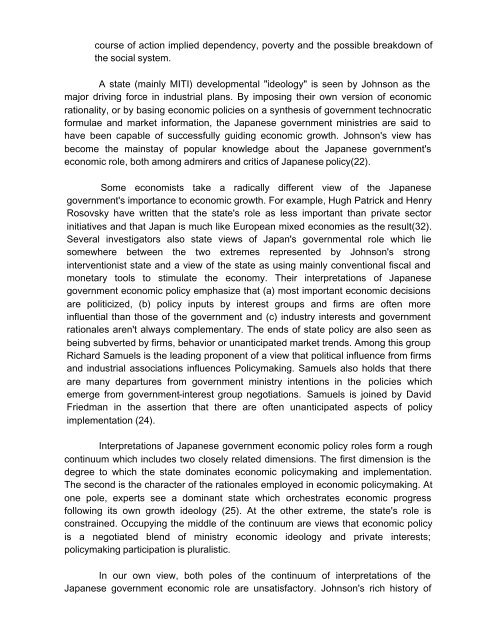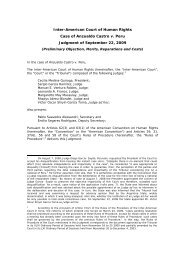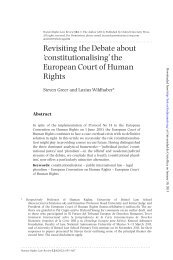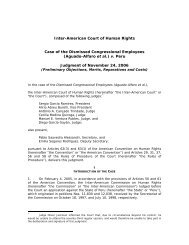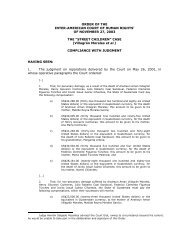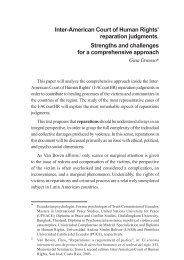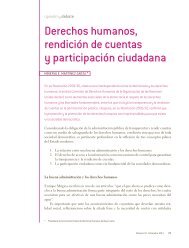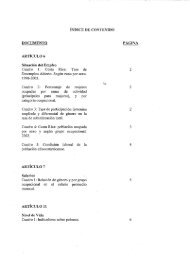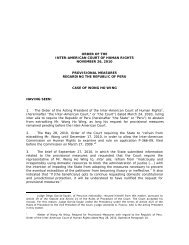The Political Economy of Japan Bradley M. RICHARDSON
The Political Economy of Japan Bradley M. RICHARDSON
The Political Economy of Japan Bradley M. RICHARDSON
- No tags were found...
You also want an ePaper? Increase the reach of your titles
YUMPU automatically turns print PDFs into web optimized ePapers that Google loves.
course <strong>of</strong> action implied dependency, poverty and the possible breakdown <strong>of</strong>the social system.A state (mainly MITI) developmental "ideology" is seen by Johnson as themajor driving force in industrial plans. By imposing their own version <strong>of</strong> economicrationality, or by basing economic policies on a synthesis <strong>of</strong> government technocraticformulae and market information, the <strong>Japan</strong>ese government ministries are said tohave been capable <strong>of</strong> successfully guiding economic growth. Johnson's view hasbecome the mainstay <strong>of</strong> popular knowledge about the <strong>Japan</strong>ese government'seconomic role, both among admirers and critics <strong>of</strong> <strong>Japan</strong>ese policy(22).Some economists take a radically different view <strong>of</strong> the <strong>Japan</strong>esegovernment's importance to economic growth. For example, Hugh Patrick and HenryRosovsky have written that the state's role as less important than private sectorinitiatives and that <strong>Japan</strong> is much like European mixed economies as the result(32).Several investigators also state views <strong>of</strong> <strong>Japan</strong>'s governmental role which liesomewhere between the two extremes represented by Johnson's stronginterventionist state and a view <strong>of</strong> the state as using mainly conventional fiscal andmonetary tools to stimulate the economy. <strong>The</strong>ir interpretations <strong>of</strong> <strong>Japan</strong>esegovernment economic policy emphasize that (a) most important economic decisionsare politicized, (b) policy inputs by interest groups and firms are <strong>of</strong>ten moreinfluential than those <strong>of</strong> the government and (c) industry interests and governmentrationales aren't always complementary. <strong>The</strong> ends <strong>of</strong> state policy are also seen asbeing subverted by firms, behavior or unanticipated market trends. Among this groupRichard Samuels is the leading proponent <strong>of</strong> a view that political influence from firmsand industrial associations influences Policymaking. Samuels also holds that thereare many departures from government ministry intentions in the policies whichemerge from government-interest group negotiations. Samuels is joined by DavidFriedman in the assertion that there are <strong>of</strong>ten unanticipated aspects <strong>of</strong> policyimplementation (24).Interpretations <strong>of</strong> <strong>Japan</strong>ese government economic policy roles form a roughcontinuum which includes two closely related dimensions. <strong>The</strong> first dimension is thedegree to which the state dominates economic policymaking and implementation.<strong>The</strong> second is the character <strong>of</strong> the rationales employed in economic policymaking. Atone pole, experts see a dominant state which orchestrates economic progressfollowing its own growth ideology (25). At the other extreme, the state's role isconstrained. Occupying the middle <strong>of</strong> the continuum are views that economic policyis a negotiated blend <strong>of</strong> ministry economic ideology and private interests;policymaking participation is pluralistic.In our own view, both poles <strong>of</strong> the continuum <strong>of</strong> interpretations <strong>of</strong> the<strong>Japan</strong>ese government economic role are unsatisfactory. Johnson's rich history <strong>of</strong>


